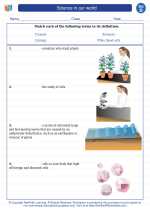Insulation
Insulation is the process of slowing down or preventing the transfer of heat, electricity, or sound. In the context of thermal insulation, it involves using materials that reduce the flow of heat between objects or regions with different temperatures. Insulation is important for maintaining comfortable indoor temperatures, reducing energy consumption, and preventing heat loss or gain in buildings, appliances, and industrial processes.
Types of Insulation
There are several types of insulation, including:
- Thermal Insulation: Materials like fiberglass, foam, cellulose, and reflective barriers are used to reduce the transfer of heat.
- Electrical Insulation: This type of insulation prevents the flow of electrical current and is essential for safety in electrical systems.
- Acoustic Insulation: Materials such as foam, mineral wool, and sound barriers are used to reduce the transmission of sound.
Factors Affecting Insulation
Several factors can affect the effectiveness of insulation:
- Material: Different materials have varying insulating properties. For example, materials with high thermal resistance, such as fiberglass and foam, are commonly used for thermal insulation.
- Thickness: Thicker insulation generally provides better resistance to heat flow.
- Installation: Proper installation of insulation is crucial for maximizing its effectiveness. Gaps, compression, and improper sealing can reduce its performance.
- Environmental Conditions: Factors like temperature, humidity, and exposure to moisture can impact the performance of insulation materials.
Applications of Insulation
Insulation is used in various applications, including:
- Buildings: Insulation is essential for maintaining comfortable indoor temperatures, reducing energy costs, and meeting building code requirements.
- Appliances: Refrigerators, freezers, water heaters, and other appliances use insulation to improve energy efficiency.
- Industrial Processes: Insulation is used to control temperatures in industrial equipment, pipelines, and storage tanks.
Study Guide for Insulation
- Define insulation and explain its significance in everyday life.
- List and describe the different types of insulation.
- Discuss the factors that influence the effectiveness of insulation.
- Explain the importance of proper insulation in buildings, appliances, and industrial applications.
- Compare and contrast the insulating properties of different materials commonly used for thermal insulation.
Understanding insulation is essential for creating energy-efficient and comfortable living and working environments. By mastering the concepts of insulation, you can contribute to sustainable and responsible energy usage.
.◂Science Worksheets and Study Guides Fourth Grade. Science in our world
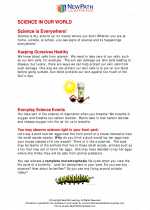
 Worksheet/Answer key
Worksheet/Answer key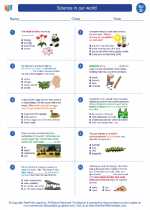
 Worksheet/Answer key
Worksheet/Answer key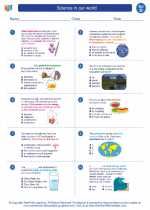
 Worksheet/Answer key
Worksheet/Answer key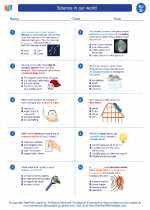
 Vocabulary/Answer key
Vocabulary/Answer key